Thomas Tufte: Crisis as a “laboratory” for ComDev study
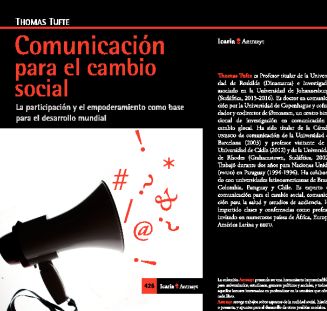
Communication for Social Change. Participation and Empowerment as the basis for World Development, a book written by co-director of Ørecomm Thomas Tufte, is released. What is it about and what can we learn from it about the current state of ComDev?
You have recently come back from Spain after launching your new book, written in Spanish with the translated title Communication for Social Change. Participation and Empowerment as the basis for World Development. Why a book in Spanish?
Spain has since 2008 experienced not only a profound financial crisis, amongst the most severe in Europe. They have also experienced a massive social mobilization with the Indignados movement, unfolding in 2011 but subsequently spreading in many ways within civil society, and resulting in the establishment of a number of new political parties. Podemos in particular, has won enormous victories at the municipal and regional elections on 24 May 2015. This Spanish critical situation, their challenges and their fascinating transformation is becoming one of the most interesting global laboratories for the study of social movements and their networked, creative and horizontal uses of media within transformed communicative ecologies.
Despite the profound crisis of academia in Spain, there is a rich and really fertile ground to discuss communication, activism and social change. Furthermore, there is a parallel and longstanding interest in communication for social change in Latin America. After having collaborated with many media and communication scholars in the region for the last 25 years I decided to offer my perspectives on key conceptual and empirical issues in the field of communication, activism and social change.
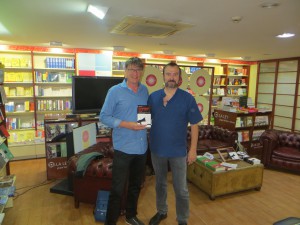
Can you give a brief introduction to your book?
The book offers a critical analysis of the way communication for development has been conceptualized and practiced over the years in a broad set of organizations. It draws on both Latin American and African scholars of media, communication and culture, trying deliberately to articulate a closer dialogue between these and a range of Anglo-Saxon scholars researching the same topics.
The world is experiencing a series of profound transformations that influence fundamentally upon opportunities for citizen engagement in social change. Firstly, the rapidly changing media environment is a given feature to critically assess. Secondly, following a profound critique of the western development paradigm we are seeing a series of very different perspectives upon development, from the proposal for a Gross National Happiness index in Bhutan to Latin America’s sustainable development agenda as formulated in the ideas of ‘Buen Vivir’ (Good Living). A third challenge lies in addressing the crisis of citizenship and of all those rights and opportunities that should follow with the experience of citizenship. So, summing up, I suppose what I do in this book is taking on quite a large number of debates pertaining to the history, development and contemporary challenges within communication for social change.
You write in your introduction that “The development of communication for development as a field of both theory and practice is a contradictory process.” What is the cause of this ambiguity and where are flaws in your opinion?
The ambiguity comes from the varying and sometimes contradicting opportunities that society offers for communication for social change to happen. The many examples of citizen insurgence that we have seen in recent years have been sparked by the widespread feeling of necessity to respond to political and economic crisis. Groups of citizens came together in what became large social movements mobilizing against both democratic and authoritarian governments. At the same time, a different kind of momentum has also unfolded in the space that the political system, the government, has created. This was for example the case in Paraguay during the presidency of Fernando Lugo (2008- 2012) where a lot of opportunities occurred for a strengthening of ComDev in academia, as a field of study. He even created in Ministry of Information and Communication for Development. In practice it actually expanded the opportunities for voice and visibility in the mediascape, strengthening public tv, community radio, etc.
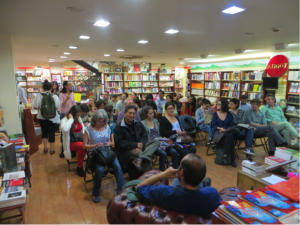
Now, that your book is out, what’s next?
First and foremost, I would like to discuss the issues of the book with the relevant constituency, with students, colleagues and with civil society. I have trips planned to both Spain and several countries in Latin America in a near future. But I am also fully engaged with writing my next book project where I will go a step further in trying to take on the challenge of analyzing what is it that the new social movements of the last few years are doing, when it comes to communication and social change.
The book can be purchased on the publisher’s, Icária, website. You can see prologue and list of contents here. The publication will be available as an e-book in October 2015.
 New PhD opportunities at the University of Leicester
New PhD opportunities at the University of Leicester Call for Abstracts: New Directions in Media, Communication and Sociology (NDiMS) Conference
Call for Abstracts: New Directions in Media, Communication and Sociology (NDiMS) Conference Ørecomm Team to Gather at the University of Coimbra
Ørecomm Team to Gather at the University of Coimbra “Communication and Social Change – A Citizen Perspective” Published
“Communication and Social Change – A Citizen Perspective” Published C4D Network to Sum Up Global Communication for Development Practice
C4D Network to Sum Up Global Communication for Development Practice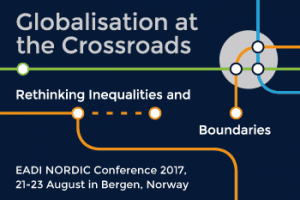 Entering Media and Communication into Development Conferences?
Entering Media and Communication into Development Conferences?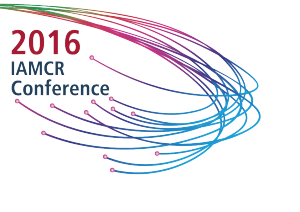 IAMCR Conference 2016: Communication for Development Highlights
IAMCR Conference 2016: Communication for Development Highlights Glocal Classroom Revisited – Storytelling & Social Change Leicester-Malmö
Glocal Classroom Revisited – Storytelling & Social Change Leicester-Malmö I EvalComDev International Conference: Call for Papers
I EvalComDev International Conference: Call for Papers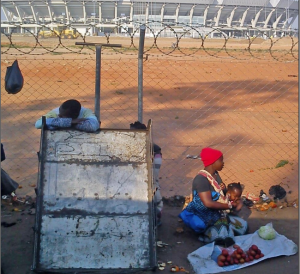 Looking for Media and Communication in Development Conferences: Devres 2016
Looking for Media and Communication in Development Conferences: Devres 2016